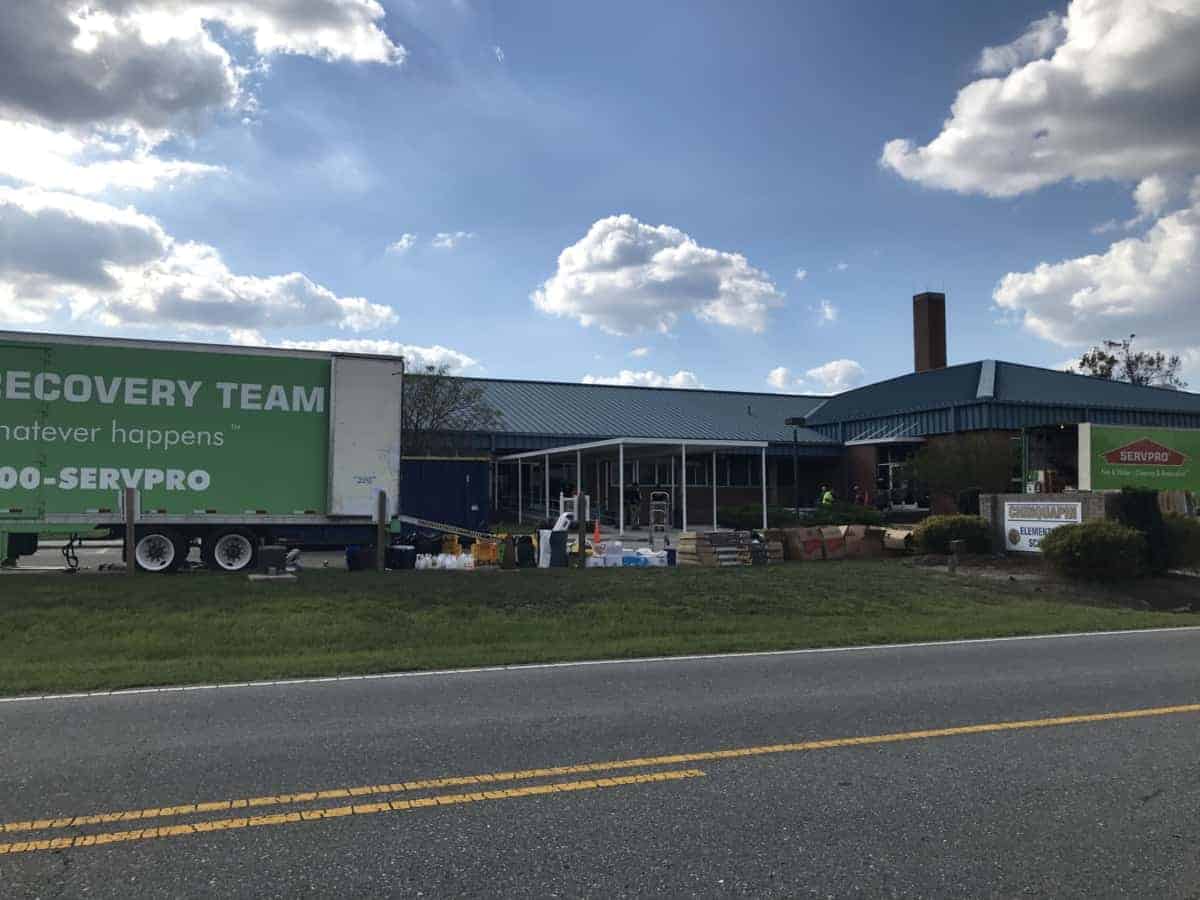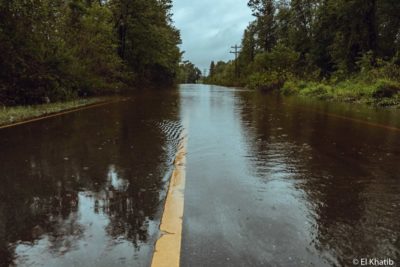

When Hurricane Florence hit last year, less than a month had passed since students around Duplin County went back-to-school shopping, buying new clothes and school supplies and getting excited for the new school year.
Then Florence came and flooded this community, hitting Duplin as bad — if not worse — than any county in the region.
“I remember one mom who said they had to go to the fire department and pick through a pile of clothes,” recalled Amber Dail, whose children attended Chinquapin Elementary, a fifth-through-eighth grade school in the county. The mother Dail is referring to had an eighth grader and twin sixth graders at the school.
“At that age, you just don’t really want to go pick through a pile of used clothes,” she said. “That was really tough for them.”
It’s sometimes easy to forget the social anxiety and obstacles students face after increasingly frequent storms pass through eastern North Carolina communities. In addition to anxiety young children feel when it rains, older children struggle with the after-effects of flooding, too. And often in ways that they don’t verbalize.
“Especially in the middle school and high school years, there are social pressures that are there and things like losing your clothes and supplies, and even living in trailers, it’s [a source of] embarrassment,” Dail said. “That’s something people don’t always think about.”
Last year at Chinquapin Elementary, there were numerous students dealing with this.
“It was a really big eye opener for them when they went back to school,” Dail said of her two sons, who were fifth and eighth graders at Chinquapin last year. “All of their friends that lost everything, it was kind of a shock to them. And we had a lot of students at Chinquapin that lost everything.”
Dail’s kids, Jayden and Avery, noticed classmates in different clothes. Not new, but different. They saw classmates crying. As the fall season of Florence’s arrival passed and winter descended, they heard classmates who were living in trailers and campers talk about how incredibly cold they felt at night.
“Really heartbreaking,” Dail said. “It was really tough to hear about all this.”
The Chinquapin family banded together, though.
“We have a great school,” Dail said. “I love our school. We all pitched in. We worked with a social worker, and we all got names of kids to help and their sizes. We all got names, and there were a lot.”
The sense of community that Dail says always existed at the school grew even stronger. They had been through a common calamity and they could relate better.
“It’s easy for us to get caught up in our daily lives, and we take things for granted,” Dail said. “And then, for kids in that age group to see how easy something can happen and change everything. We talk about it all the time. We talk about the storm. And it’s that season again, and I hear people saying that if it starts raining and the wind starts blowing, I don’t think I’ll be able to stand it.”
As the school year ended, the graduation festivities took on a larger meaning. It was a celebration of growth and accomplishment in school — but it was also a celebration of triumph over storm setbacks.
Jayden finished fourth in his class, and the school invited him to speak at graduation. The Dail’s had weathered Florence without flood damage or losing any clothes or school supplies, but Jayden still had a difficult year.
When the school gym’s floor was repaired, cleaned, and re-treated, spots were slick. He fell on the second day back and broke his arm. He also had respiratory issues, which his doctors believe were caused by the air quality in the school — though the Dail’s don’t blame the school, and Avery had no issues.
When Jayden delivered his speech at graduation, it was with a sense of accomplishment — not just in the classroom, but in the community’s collective service to one another. He opened with a Biblical passage from Ecclesiastes.
“Everybody was in tears,” Dail said.
The recovery is ongoing. Just last month, Dail received an email from the social worker that one of the school’s families had just found a place to live after being displaced. The social worker was reaching out on that family’s behalf for mattresses.
“Still,” Dail said. “That’s happening now. It’s been a year.”
Other families are living in trailers that FEMA provided or campers they purchased on their own, over a year after the storm hit.
“And it’s crazy to think about it, because now we’re in another hurricane season, and people who are recovering from the last one are being told by FEMA that FEMA needs the trailers back,” Dail said. “But they don’t have anywhere to go. And they’re doing the very best they can.”


